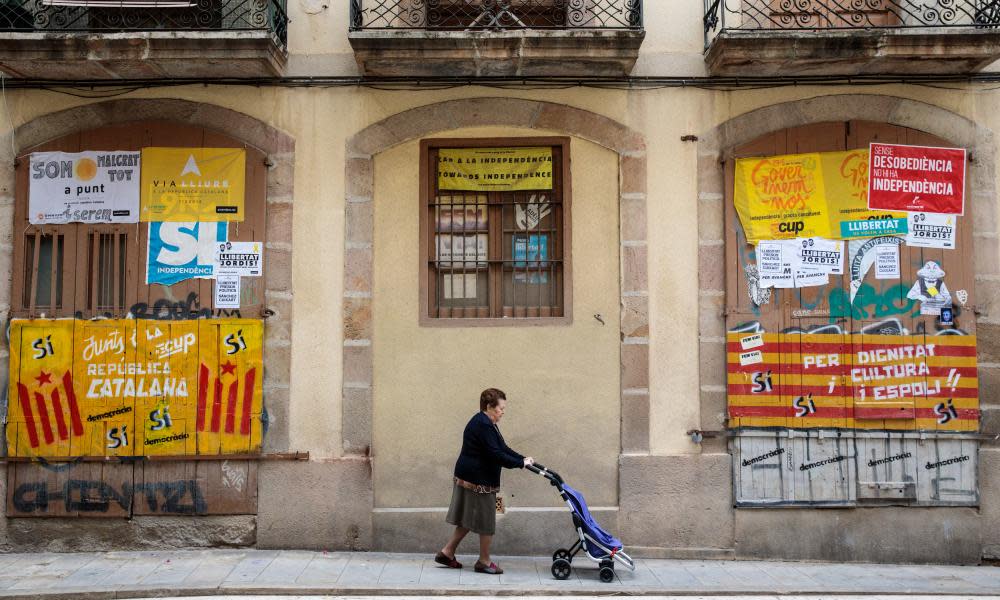The Guardian view on the Catalan crisis: wanted: an honest broker | Editorial

Everything about the increasingly polarised stand-off between Spain and Catalonia suggests a crisis that could and should have been averted by earlier and wiser actions on both sides. Instead, the two antagonists are now becoming too deeply entrenched for either of them to de-escalate with honour or with the agreement of their most fervent supporters. The situation is volatile and dangerous and it is getting more so. The president of Spain’s Basque region, Iñigo Urkullu, is clearly right to say, in our Opinion pages today, that a political solution based on dialogue and negotiation is required.
There is no mileage in the blame game. Spain’s weekend move towards the imposition of direct rule did not start this process, any more than Catalonia’s declaration of independence did. Both actions were provocative, part of a ratcheting of defiance between two leaders, Mariano Rajoy in Madrid and Carles Puigdemont in Barcelona, who have each made mistakes while at the same time appearing keen to keep the dispute from getting out of hand. Yet events may now be slipping quickly out of their control. Mr Puigdemont is under pressure to get Catalan MPs to vote for a unilateral declaration of independence as early as Thursday. A day later, however, the Spanish senate is expected to strip the Catalan administration of its powers and transfer them to Mr Rajoy in Madrid. The crisis remains resolvable and overwhelmingly peaceful. But neither of these things may last.
Outsiders are not the only ones who are getting worried. Further false moves by Mr Rajoy are likely to provoke even moderate Catalans to opposition, as Madrid’s earlier heavy-handedness and the police actions during the unilateral referendum did. Meanwhile Catalans are said to be increasingly uneasy that they could be set upon a path to a full secession from Spain that many of them do not seek, and which the rest of Europe, not just Spain, opposes.
The widespread local belief that Catalan society is somehow closer than Spain’s to “European values” is being tested to destruction. Europeans from Spain and beyond love Barcelona. They extol and respect Catalan culture, particularly when they remember the repression of the Franco-era past. Yet this feeling does not widely translate into the embrace of a separate Catalan state and this is not 1936. Nevertheless Madrid has most to lose, even if the current crisis eases, if its current actions antagonise Catalan feeling for a generation.
Catalonia is not the only place where nationalist separatism is a challenge to the existing EU nation-state order. Scotland is still going through similar convulsions, while two of Italy’s richest northern regions, Lombardy and the Veneto, have just voted for increased autonomy from Rome. In each case, though, the onus is primarily on the larger nation state to respond creatively, permitting legal votes on separation but also offering devolved solutions too, as the UK broadly did over Scotland. As the Basque president says, Madrid has not sufficiently pursued or explored these options.
Two questions therefore face the two sides, as well as those who observe from outside: can Spain and Catalonia step back from conflict? And what, if anything, can the outside world do to help that happen? Mr Puigdemont has always wanted international mediation as a means of securing recognition as an equal partner with Madrid. That is why the EU was bound to be opposed. But a respected independent third party could play a role as an honest broker. Governments and civil society groups in Europe and elsewhere should explore that possibility with urgency.

 Yahoo News
Yahoo News 
